Privacy Policy | Terms and Conditions | Disclosure Statement | License Policy
COPYRIGHT © 2024 | NUMBER 8 COOKING | ALL RIGHTS RESERVED.

Privacy Policy | Terms and Conditions | Disclosure Statement | License Policy
COPYRIGHT © 2024 | NUMBER 8 COOKING | ALL RIGHTS RESERVED.

Privacy Policy | Terms and Conditions | Disclosure Statement | License Policy
COPYRIGHT © 2024 | NUMBER 8 COOKING | ALL RIGHTS RESERVED.
Knowing how to season food correctly has the potential to supercharge your next meal. As a seasoned chef, I’m sharing my culinary expertise on how to season food to perfection.
Armed with this knowledge you will be seasoning like a pro in no time at all. You will start injecting some excellent taste into your next meal and beyond.
ADVERTISEMENT CONTENT BELOW
Seasoning food is so much more than making food taste salty. Adding salt brings out the natural flavors of food that you’re seasoning.
Being a professional chef and knowing how to season food correctly is a skill that makes money. I’m going to share with you the tricks of the trade.
I’m going to show you the best way to season your food. Some of the varieties of salt you should be using, (there is more than Kosher salt).
Practical ways you can add unique flavor to your food. Herbs, spices, vinegary, and citrus flavors. All have their part to play when it comes to seasoning food.
I will also give you a solution when you have over-seasoned food. (And it is not adding more of something to dilute the salty flavor).
Think citrus juice, vinegar, and all those excellent sour, tangy ingredients that are so underutilized. So, keep reading and learn how to season food like a pro.
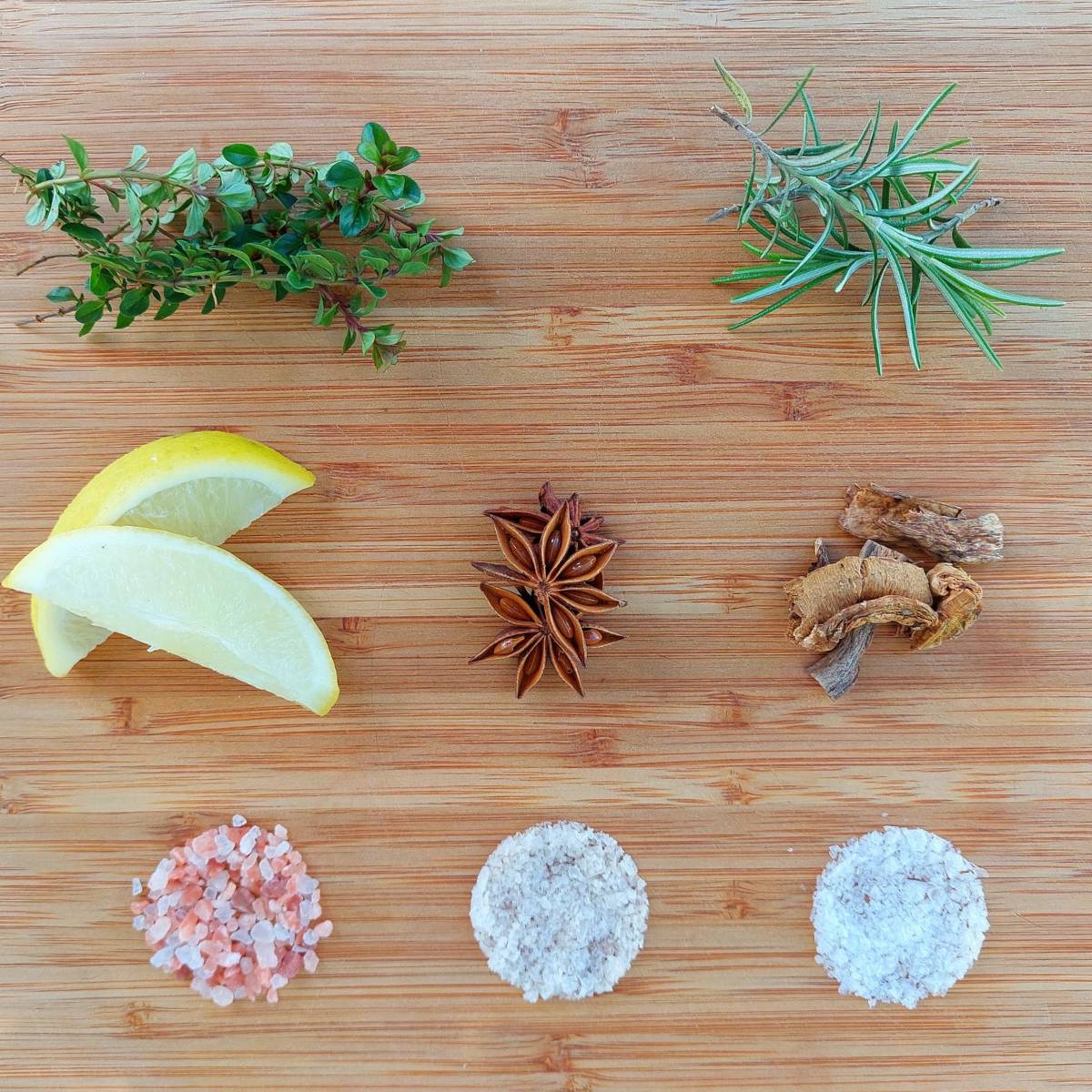
ADVERTISEMENT CONTENT BELOW
I use Himalayan pink salt when cooking. I also use Maldon salt as a finishing salt. And from time to time I use smoked salt. This is when I want to quickly infuse a subtle smokiness into a dish. I avoid table salt at all costs! Most have an anticaking agent that imparts an insipid bitter flavor.
When seasoning food, especially chicken, fish fillets, or lamb, I season from a height. About 15-20cm (5.9- 7.9 inches) above the food. This will evenly cover a larger area and give you a consistent seasoning technique.
When it comes to steak, season a plate or a tray. Then rub the steak onto the seasoned tray. Make sure to cover the entire surface of the steak. Don’t forget about the sides. The more surface area of the steak you season the better it will taste.
Chef’s Pro Tip — I always season steak before cooking. (There are many chefs that prefer to season steak after cooking). The reason why I season streaks before cooking is I want to infuse the seasoning into the meat.
Yet, I will season the steak only when I’m ready to cook it. So the salt doesn’t draw out any moisture. Seasoning your steak too early can remove valuable moisture. Making it dry when cooked.
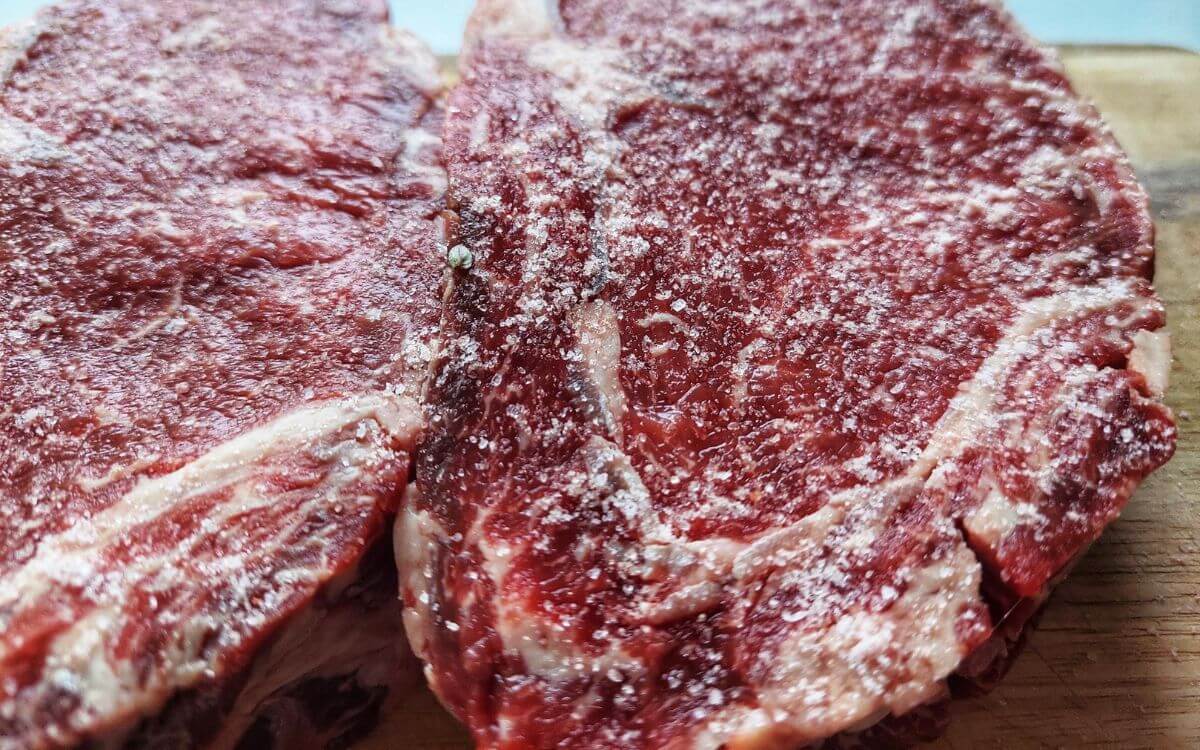
Salty, versatile, and indispensable. Salt reigns supreme as the undisputed king of the kitchen. In our culinary world, it is more than just a seasoning. Salt is the essential element that transforms ordinary ingredients into extraordinary dishes.
Understanding how to season food in the savory realm of salt. Will help you to create memorable meals. There are many varieties available today, gone are the days of using iodized table salt. Salt is the most underrated ingredient in our kitchen. We are going to dive into some of the varieties of salt, and where you can get them.
In all my recipes unless otherwise stated I use Himalayan pink salt. Which I grind when needed. Pink salt has a fantastic flavor profile. That brings out the natural flavors of every ingredient it touches.
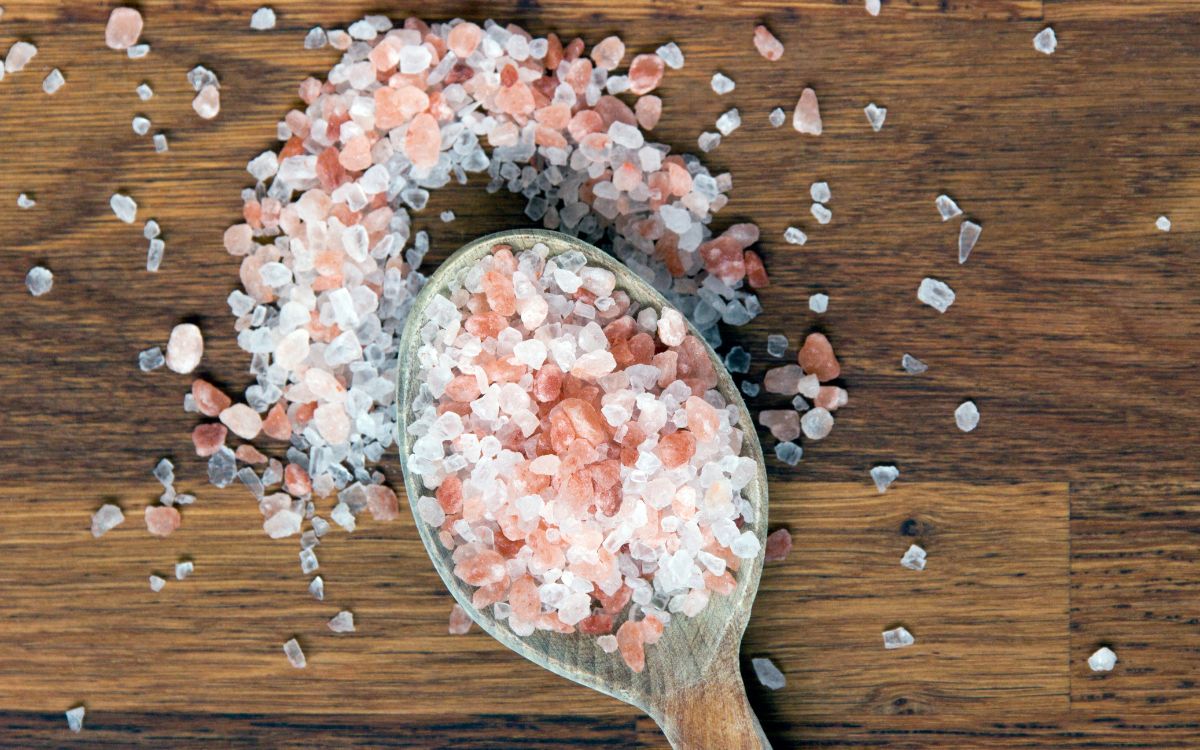
ADVERTISEMENT CONTENT BELOW
A Finishing Salt takes the spotlight as the crowning jewel of seasoning. Adding a final touch of flavor and texture to a dish before serving.
Unlike salts used during cooking, I use finishing salts to sprinkle on top of the finished dish. Creating a flavorful and textual garnish. Their unique qualities is one way of how to season food. Injecting flavor into my completed dish.
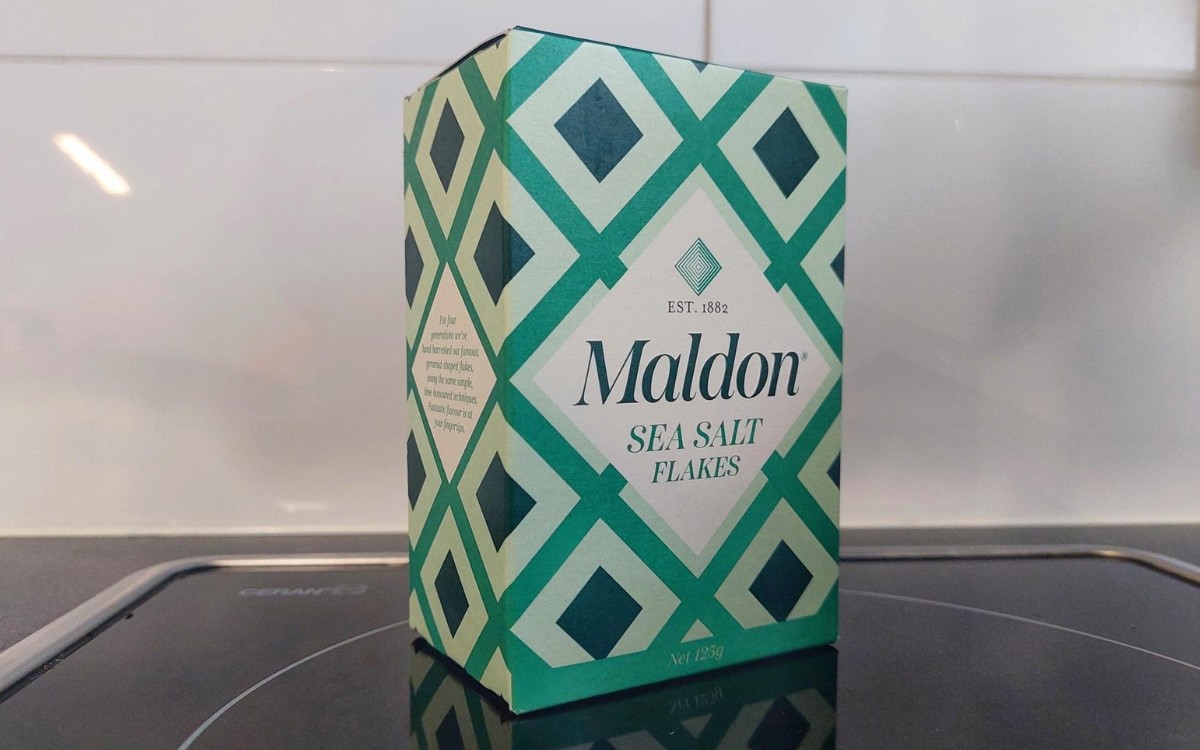
Chef’s Pro Tip — I recommend incorporating smoked salt into your casseroles, soups, and sauces. This will infuse the smokey flavors with the saucy essence of these dishes. Creating an underlying smokey taste that is intoxicating and delicious. Another way of how to season food.
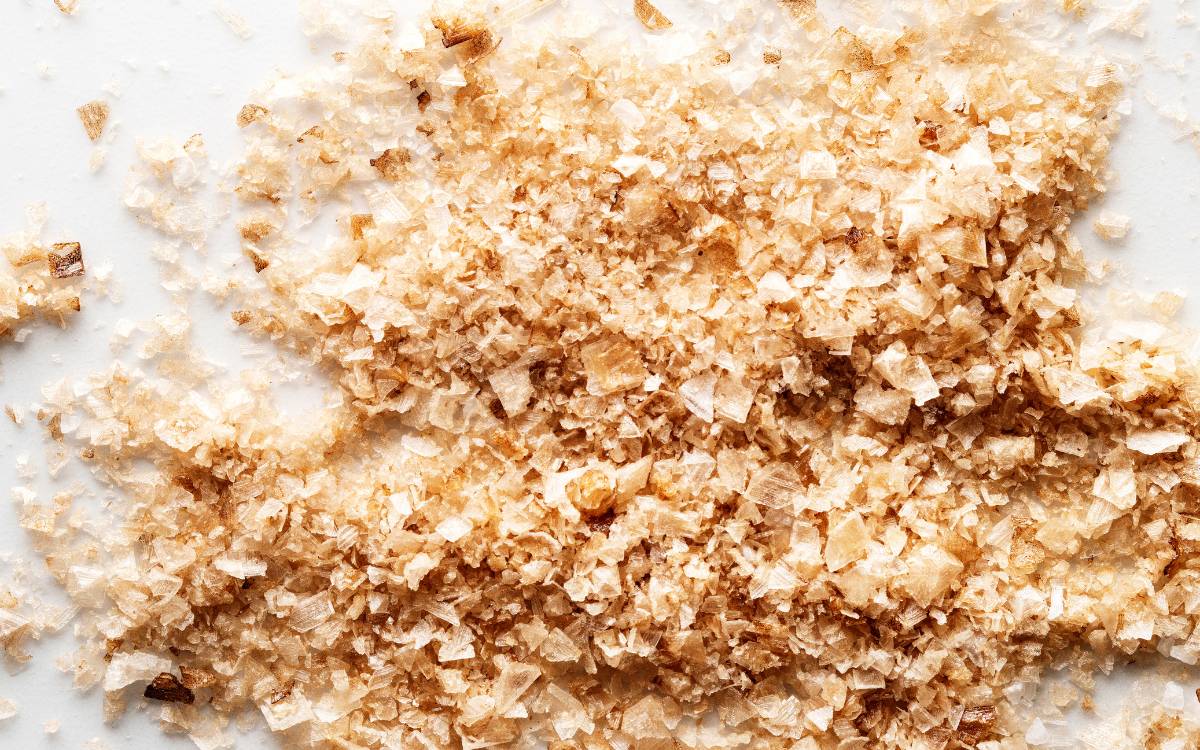
Salt is a culinary cornerstone. It possesses the unique ability to draw out moisture from food, intensifying flavors. Creating a harmonious balance of taste. When sprinkled over the skin of pork belly hours before roasting, a magical alchemy occurs. The salt slowly draws out moisture from the skin. Resulting in deliciously crispy skin when slow-roasted.
The enchantment of salt doesn’t stop there. Blanching vegetables undergo a transformative experience. In a pot of boiling water, generously seasoned with salt, blanch your vegetables. The salt-infused water draws out the vegetable’s natural flavors and vibrant colors. Turning ordinary greens into captivating tasty morsels.
From preserving, curing, and pickling. Seasoning to transform textures and unlocking taste. Salt is a culinary magician. Its subtle but powerful influence amplifies flavors. It showcases the best in every ingredient it touches. Knowing how to season food correctly will make you a culinary powerhouse.
You’ve cooked an amazing meal. However, after tasting the finished dish you realize you were heavy-handed with the salt. It tastes salty, what can you do?
Add an acidic Ingredient. The addition of acidic ingredients like fresh lime or lemon juice, or a splash of vinegar. Even a drizzle of your favorite vinaigrette dressing. This will help counterbalance excessive salty flavors. Adding a tangy or acidic ingredient will not only remove the excessive salt flavor. It can add a pop and bring your dish back to life.
Remember taste before you season. Season to taste in other words season as you cook, tasting all the time. This is seasoning food 101.
ADVERTISEMENT CONTENT BELOW
Seasoning food is beyond mere salt. Herbs, spices, and condiments. You can breathe life into your dishes supercharging them like never before.
I use a lot of fresh culinary herbs. Where freshness and versatility converge to transform your dishes into professional offerings. In my garden, I am fortunate and blessed. I have an abundant supply of thyme, rosemary, sage, and mint. These vibrant herbs provide colorful, aromatic, and herbaceous flavors and garnishes.
Fresh herbs allow us to incorporate their essence at various stages of the cooking process. Whether gently infused into simmering casseroles. Sprinkled through sautéed vegetables as a finishing touch. Or generously used as a colorful aromatic herbaceous garnish.
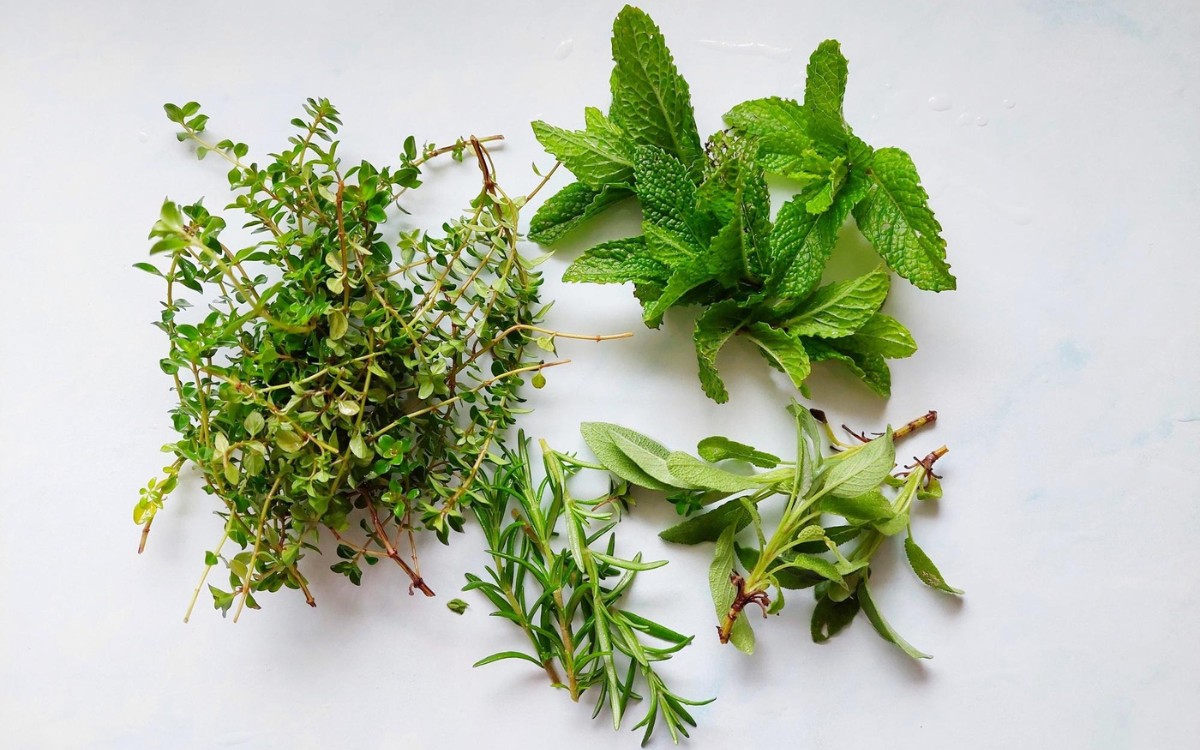
Dried herbs have an intensity, a concentrated flavor from the process of drying and preservation. Navigating the world of dried herbs requires a delicate hand. With their strength, a little goes a long way.
Should you find yourself turning to dried herbs, remember this advice. Use half the quantity of dried herbs as you would fresh. Or their robust flavors will overpower and unbalance your recipe.
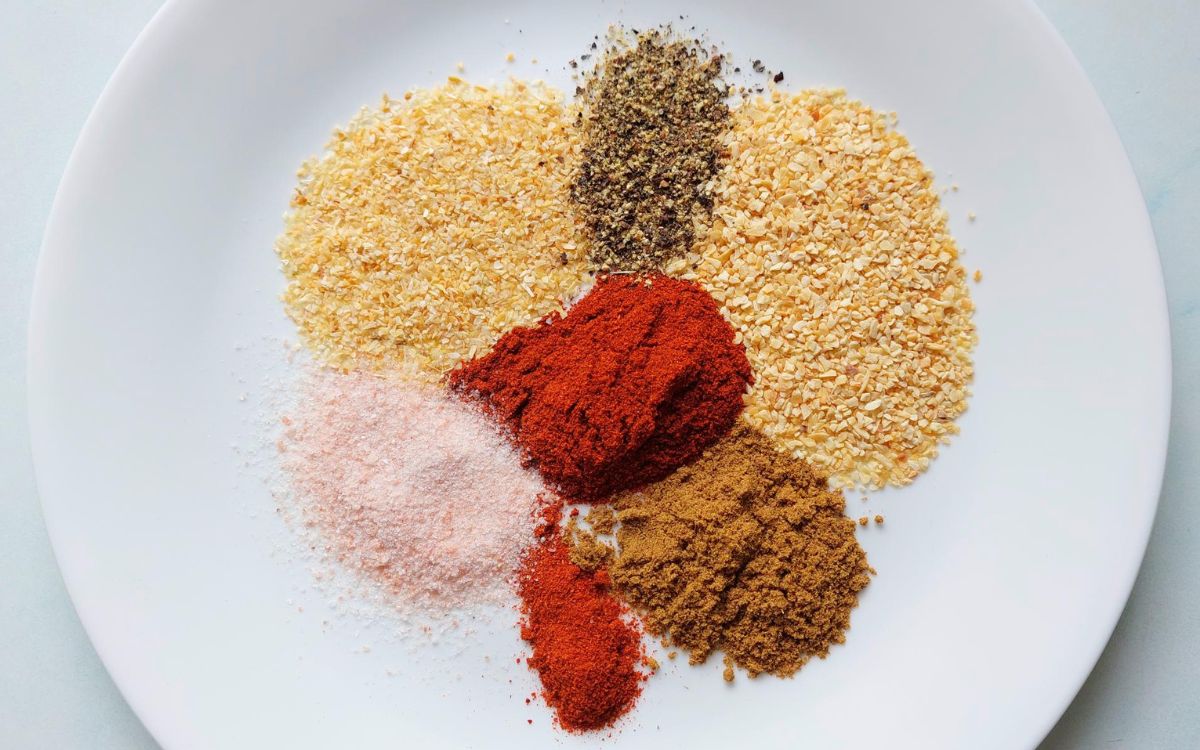
In my kitchen, these spices are staples.
These flavor powerhouses work wonders alone or in dynamic duos and trios.
How to season food using spices. Creating the perfect base for meat rubs, and marinades. Want to supercharge your dishes to gourmet status? Toast them in a sizzling pan with a drizzle of oil for a mere moment. Watch and smell as they unleash a rich spice explosion.
Heat a pan, drizzle in cooking oil like rice bran until it starts to smoke add your spices. Toast them in the pan for 20-30 seconds and then remove them from the pan. This is a powerful way of seasoning food with spices. This ancient technique is used by chefs and home cooks alike. Release an intoxicating fragrance. They will infuse into the food adding complex flavors.
Experiment with different spice combinations and timings. Witness the flavorful impact on your dishes. Embrace this powerful seasoning technique. Toasting spices will breathe soul into your food.
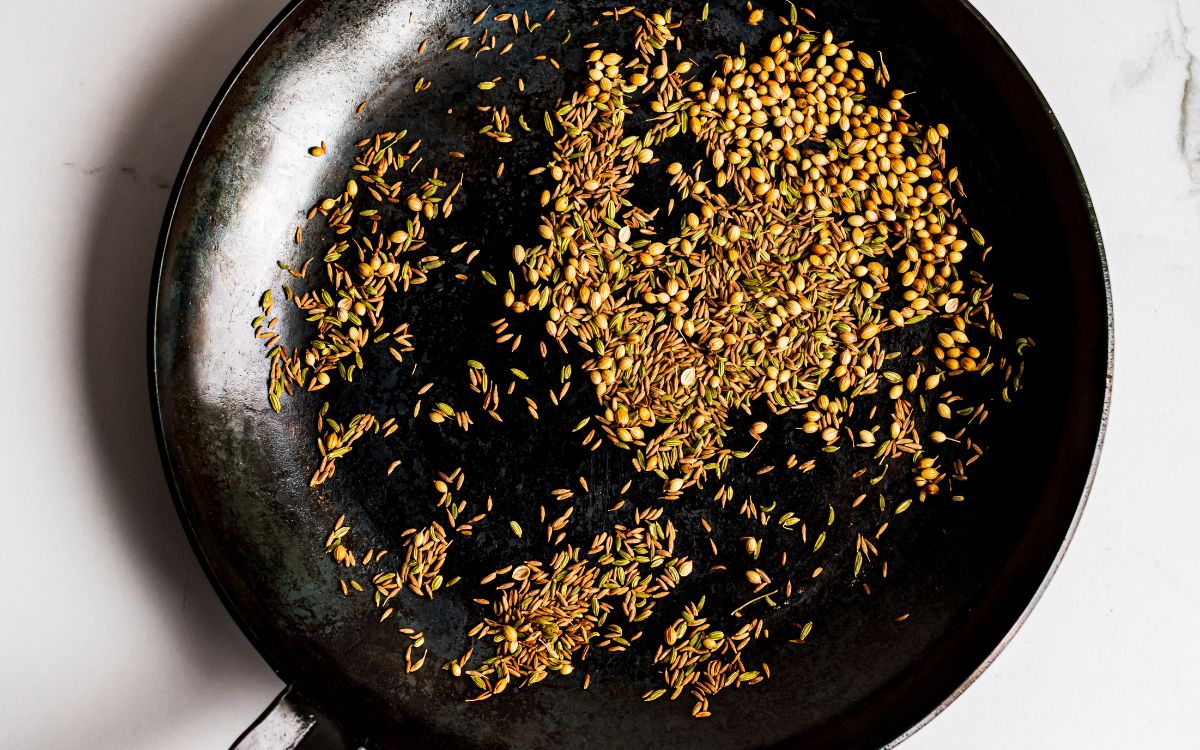
Fresh ginger, and garlic, never leave my side. As the backbone of marinades and spice pastes. These two spices are used together for a reason. Weaving flavor into food, turning ordinary dishes into tasty masterpieces.
Crushing garlic and ginger in a mortar and pestle will give you maximum flavor. When smashing garlic in a mortar with a pestle add a pinch of salt. The salt will bring out the natural oils of the garlic. Making it sticky, aromatic, and flavorful.
Extracting Flavor From Garlic — Here is a chef’s method (my method). Adding a sprinkling of salt to the garlic in the mortar yields excellent results. The salt acts as a catalyst, coaxing the flavors and oils of the garlic to the surface. Transforming it into a delicious amalgamation of stickiness, aroma, and depth of flavor.
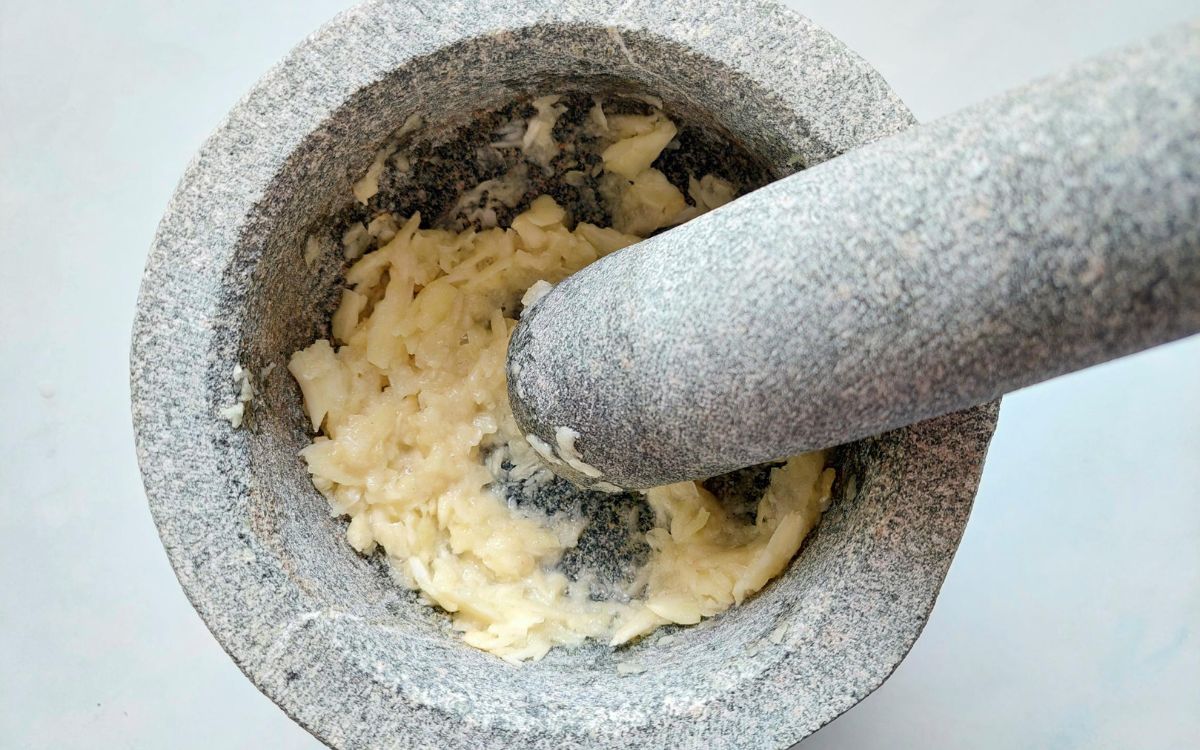
ADVERTISEMENT CONTENT BELOW
How to season food using condiments. Those flavor-enhancing companions to our dishes. They hold the power to elevate taste profiles. Adding depth, complexity, and a symphony of flavors to even the simplest of meals.
From the tangy embrace of mustard to the umami-rich notes of soy sauce. Condiments serve as gateways to gastronomic highs. Condiments come in an array of forms, textures, and tastes. Each boasts its unique characteristics to suit diverse culinary creations.
Condiments and ingredients can be a substitute for salt. Taking full advantage of these, here’s another method on how to season food.
Crushed Capers And Garlic, are a dynamic duo. That imparts a complex, savory crust to succulent lamb. When smeared over the surface before roasting. This delightful combination infuses the meat with various flavors, creating a culinary masterpiece.
Steeping Dried Porcini Mushrooms in hot water will create an amazing stock. Mushroom stock can be used for soups, sauces, and casseroles to infuse the most amazing flavors. This is an easy way to add depth and intense savouriness.
Condiments that can enhance the flavor of your recipes. Taking full advantage of these condiments is how to season food.
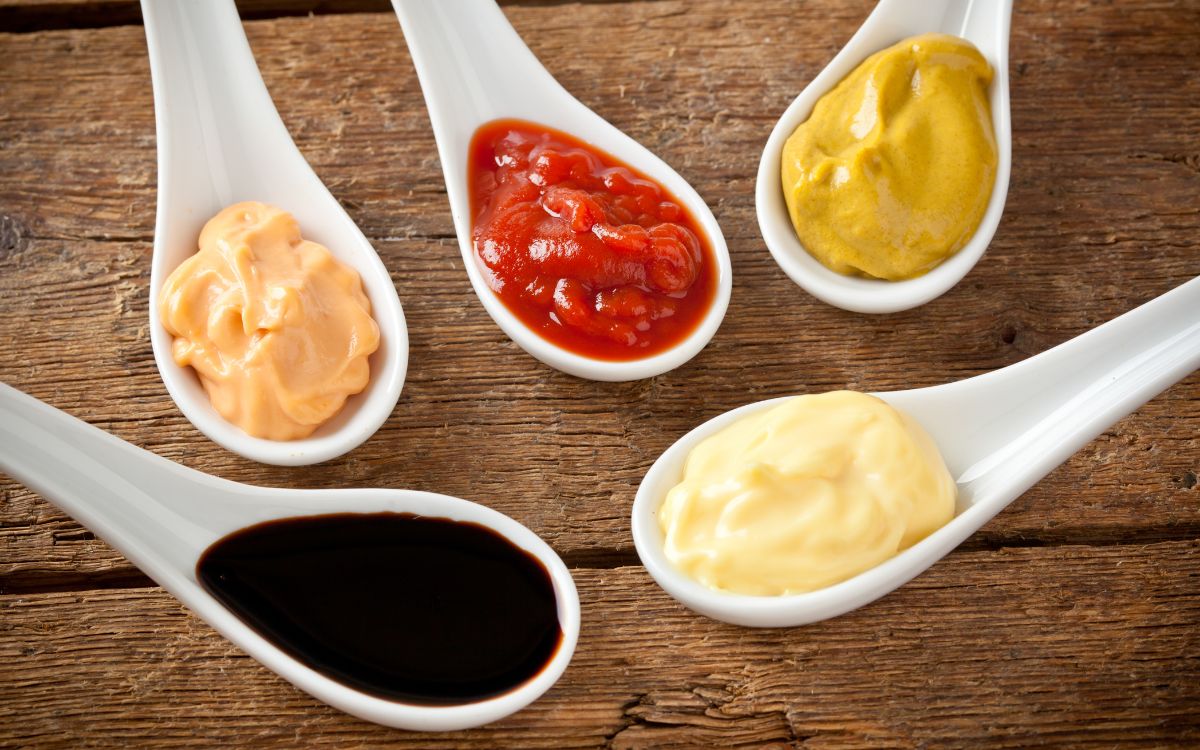
The 5 taste sensations are salty, spicy, sour, and sweet. The fifth is umami. The concept of umami, the fifth taste sensation has gained significant popularity in the culinary world. Umami is often described as a savory and rich taste. Using these taste sensations to your advantage is how to season food.
The best way to season meat is with freshly ground Himalayan pink salt. Seasoning by sprinkling the salt from a height. Allowing its delicate crystals to evenly cover the meat’s surface. Ensuring a harmonious infusion of flavor. Next garlic, thyme, and rosemary. Rub this fragrant trio over meat, allowing their essence to infuse into the meat.
For steak aficionados seeking the pinnacle of taste. Pan-sear the seasoned steak, as it sizzles in the pan. Seize the opportunity to introduce butter, thyme, and garlic. Watch as the butter melts, becoming infused with herbal essence. Embrace the technique of basting. Generously ladle the infused melted butter over the steak. Which elevates its succulence and imparts unparalleled flavor.
The best way to season vegetables is with Maldon salt and freshly ground black pepper. A simple yet effective combination is drizzling olive oil over the vegetables. Along with a splash of balsamic vinegar. Or toss in fresh thyme leaves with a homemade vinaigrette.
Cooking is a science and a skill that requires a deep understanding of both the technical and creative aspects. Cooking is also a matter of precise measurements and ratios.
For example, baking is particularly sensitive to accurate measurements and temperatures. A slight deviation in the amount of an ingredient or cooking degrees can result in a completely different outcome. So, to help you here is a handy little unit converter tool for cooking without guesswork.
Mastering the skill of seasoning is the key to unlocking a world of extraordinary flavors. Elevating your culinary creations to new heights. By understanding how to season food and the five taste sensations. You can supercharge your food to craft delicious well-balanced dishes.
Embrace the diverse array of herbs, spices, and condiments. Allowing them to infuse into the food you cook. Adding depth, complexity, and character. From the delightful brininess of capers to the umami-rich allure of parmesan cheese. Each seasoning imparts its unique charm, transforming your meals into memorable experiences.
Remember, salt will always be king, the most underrated ingredient in your kitchen. The true beauty of seasoning lies in its versatility and personal touch. Trust your instincts, experiment, and refine your seasoning skills. Tailoring each dish to your individual taste and preferences. This is when you will truly know how to season food.